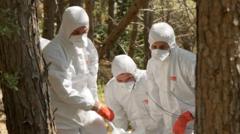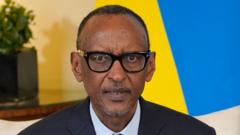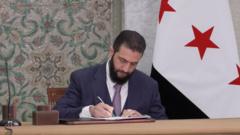**Following the recent announcement of a temporary cabinet, there is cautious optimism about the new government's ability to foster inclusivity and stability in the war-torn country.**
### Syrians Welcome New Government Amidst Transitional Challenges

### Syrians Welcome New Government Amidst Transitional Challenges
**A new caretaker government has been announced in Syria, aiming to unify a fractured nation while navigating complex political dynamics.**
In a significant political development for Syria, a new caretaker government was revealed late Saturday, marking a critical transition following years of civil unrest. This government, expected to govern for the next five years, represents a carefully curated compromise among various factions amidst the ongoing challenges in the wake of civil war.
Syria's interim president, Ahmed al-Shara, now oversees the newly-installed government, which was born out of the recent overthrow of former President Bashar al-Assad by a rebel coalition in December. The announcement unfolded just before the Eid al-Fitr celebration, signaling hope as the nation grapples with economic hardships and sectarian strife.
Al-Shara’s cabinet consists of 23 ministers—an indication of his effort to balance allegiance and diversity. Among those appointed, seven are directly linked to his administration in the rebel-held region of Idlib, yet he has also included nine independent figures, including technocrats and activists, as well as five ministers who once served in Assad's regime in a bid for broader appeal.
Notably, the cabinet recognizes all of Syria’s main ethnic communities, appointing representatives from the Kurdish, Druze, Christian, and Alawite sects, the latter being significant as it was Assad’s own group. Hind Kabawat, a Christian and the only woman in the cabinet, will lead the Ministry of Social Affairs, reflecting attempts to advocate for women's involvement in governance.
Despite this diversity, analysts caution that some groups may still feel marginalized. Abdy Yeganeh, from the Independent Diplomat organization, expressed that there remains a sense of “cautious optimism” about the new governing body. The call for a united front has intensified in light of recent sectarian violence among Alawite communities on the coast, pressuring al-Shara to create a cabinet that genuinely reflects the country’s social composition.
Experts, including Ibrahim al-Assil from the Middle East Institute, stress the necessity for inclusivity, arguing that a narrow circle of leadership is not sustainable. As this transitional government takes shape, the international and local communities will closely monitor its effectiveness in bringing unity and stability to Syria.
Syria's interim president, Ahmed al-Shara, now oversees the newly-installed government, which was born out of the recent overthrow of former President Bashar al-Assad by a rebel coalition in December. The announcement unfolded just before the Eid al-Fitr celebration, signaling hope as the nation grapples with economic hardships and sectarian strife.
Al-Shara’s cabinet consists of 23 ministers—an indication of his effort to balance allegiance and diversity. Among those appointed, seven are directly linked to his administration in the rebel-held region of Idlib, yet he has also included nine independent figures, including technocrats and activists, as well as five ministers who once served in Assad's regime in a bid for broader appeal.
Notably, the cabinet recognizes all of Syria’s main ethnic communities, appointing representatives from the Kurdish, Druze, Christian, and Alawite sects, the latter being significant as it was Assad’s own group. Hind Kabawat, a Christian and the only woman in the cabinet, will lead the Ministry of Social Affairs, reflecting attempts to advocate for women's involvement in governance.
Despite this diversity, analysts caution that some groups may still feel marginalized. Abdy Yeganeh, from the Independent Diplomat organization, expressed that there remains a sense of “cautious optimism” about the new governing body. The call for a united front has intensified in light of recent sectarian violence among Alawite communities on the coast, pressuring al-Shara to create a cabinet that genuinely reflects the country’s social composition.
Experts, including Ibrahim al-Assil from the Middle East Institute, stress the necessity for inclusivity, arguing that a narrow circle of leadership is not sustainable. As this transitional government takes shape, the international and local communities will closely monitor its effectiveness in bringing unity and stability to Syria.



















